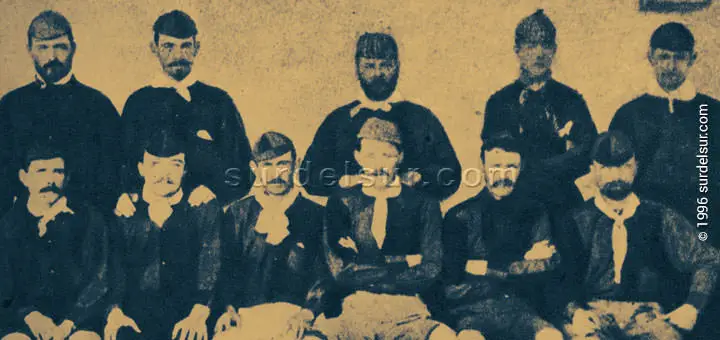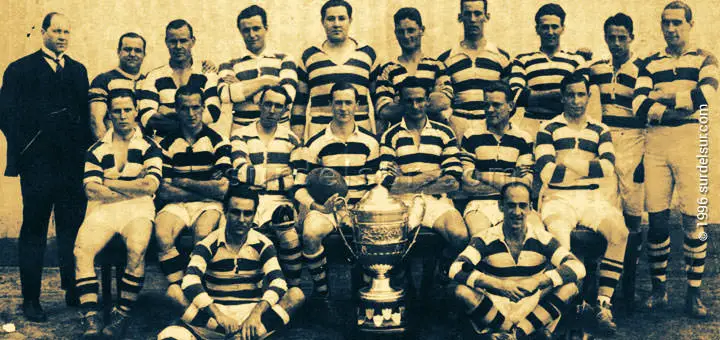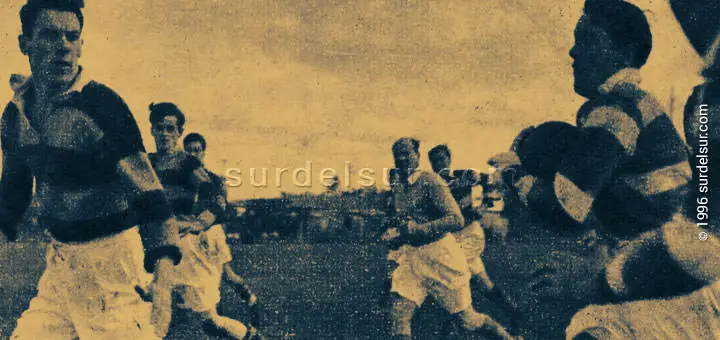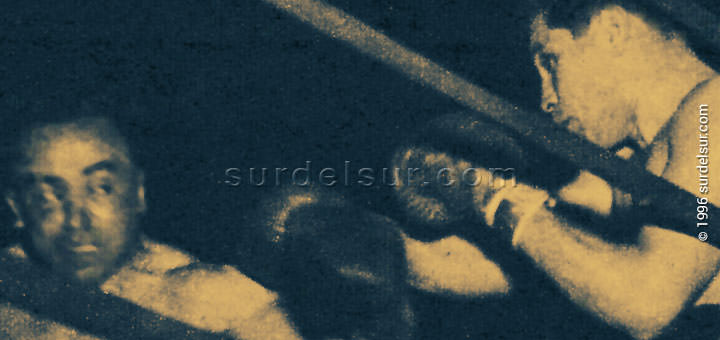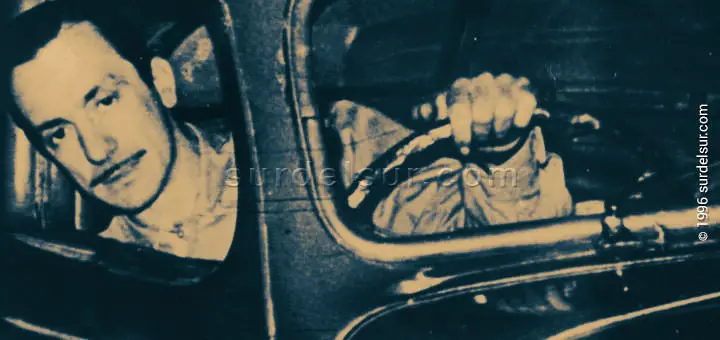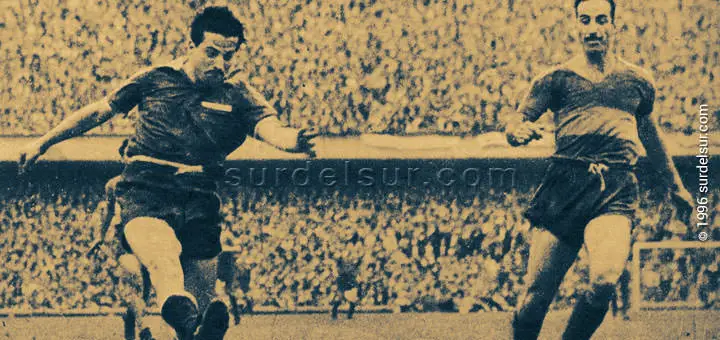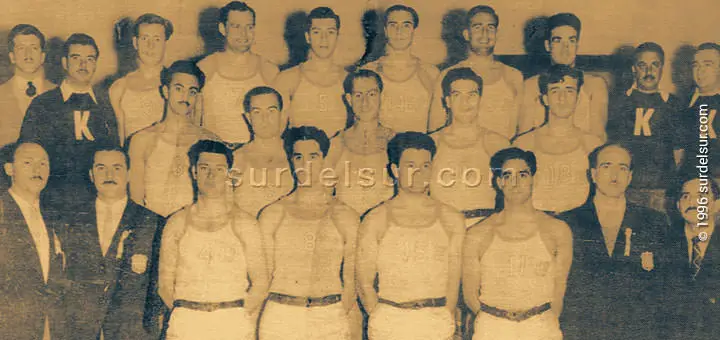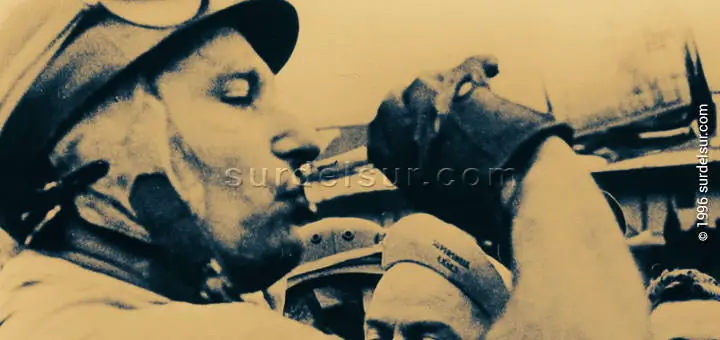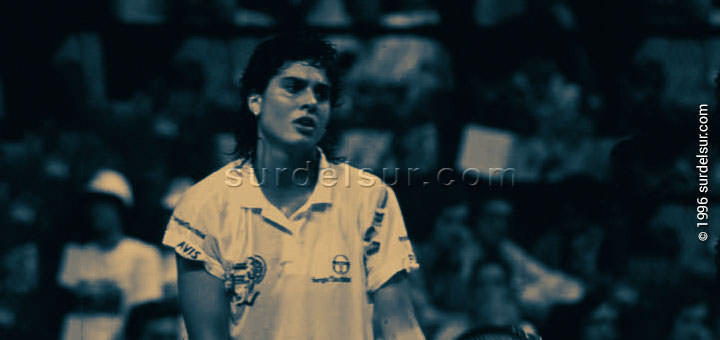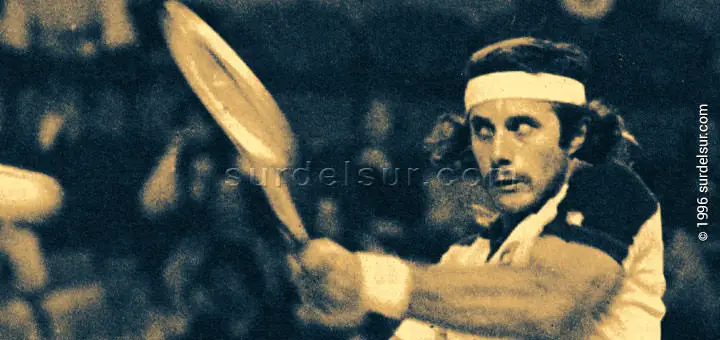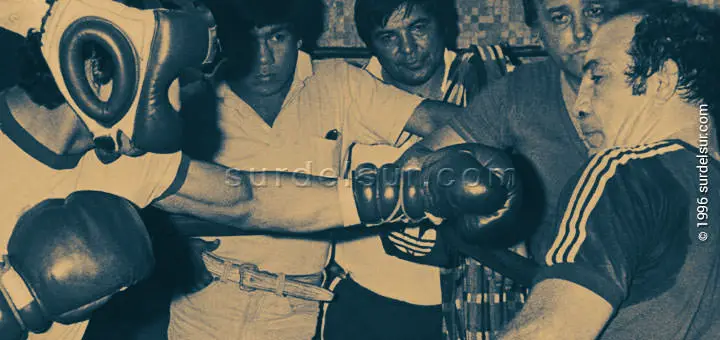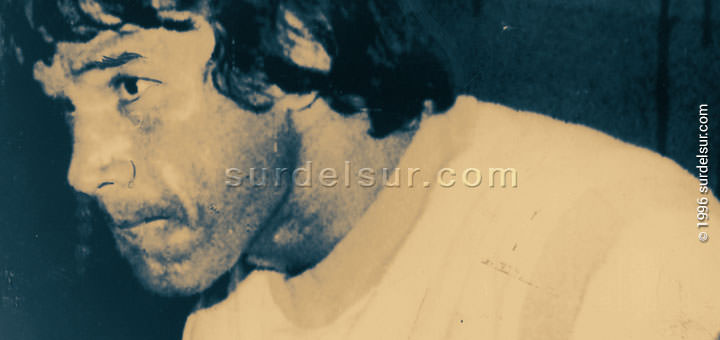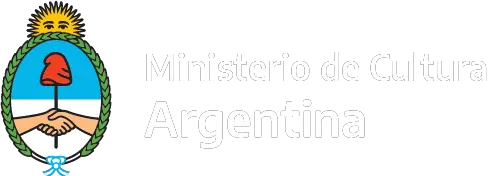If history of Argentine sport were a summation of dates and synoptic charts, we could search for the datum indicating the day when, for the first time in these lands so far away from the “civilized” centers, a competition was held for something more serious and less tragic than a military battle.
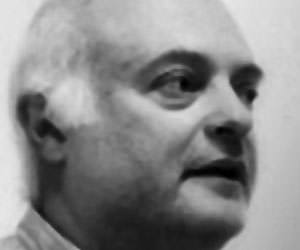
Article of the guest columnist for surdelsur.com
Fortunately, once again we realize that sports, their history, their competitive level and their place in the scale of social values become a symptom of what is happening, of life in that society. Argentina is almost 180 years old, but its institutional organization is still more recent. Sportive activities began to be institutionalized in the late 19th century.
First Clubs and Federations
It is not by mere chance that, under the economic influence of the period, the first clubs and federations created were those of rugby, soccer and tennis. All of them very British, either due to the railway workers or to the bosses and owners, for whom the gauchos’ native skills on their horses was not enough.
From then on, they are divided according to their social origin and soccer becomes the first popular phenomenon that finally broke out with the results in the Olympic Games and the World Cups. Sports like basketball, different sorts of ball sports, car racing, cycling and boxing make a second group, far removed from high competition and masses.
Decade of Glory for Argentine Sports
The moment of glory for Argentine sports could be placed in the decade following the Second World War. The comparative living standards as regards the rest of the world were the best; the economic possibilities and the political use of the results achieved represented a boost to investment in sports.
At the same time, the first disputes as to concealed professionalism arise and several generations of great sporstmen are punished because of alleged benefits.
The most pathetic example is that of the basketball champion team at the 1951 Pan American Games, whose players were disqualified for having received a motorcycle apiece. A penalty with political content rather than for reasons of morals or of amateurish purism. The fact was that in 1955 a Military Coup d’Etat took place, marking something wider than Argentine sports, the very history of Argentina.
From then on, depending on the figures who, out of their own individual effort or by natural talent, started to emerge, Argentina reduced its presence in the international medal awards. Some sports were only left with anecdotes of self-will and, of all possible diagnoses, the one more agreed upon is that which coincides in pointing to the leaders and the lack of structures as the most evident deficiency for a more useful development or growth, both in leisure sports and in High Competition.
There were exceptions such as Guillermo Vilas, who, since 1974, changed the history of Argentine tennis, making it into an issue for those who had so far regarded it as a minor, almost aristocratic sport.
Carlos Reutemann institutionalized Formula 1 in this country, in times when he could not match the championships obtained by Juan Manuel Fangio in the 1950’s.
Carlos Monzón and Nicolino Locche were the most admired world boxing champions.
From 1978 on
And, from 1978 on, we stopped being the soccer “moral champions” to achieve two world titles for the regular level (1978 and 1986), and two in the junior level (1979 and 1995), good achievements in some other contests and an incredible exodus due to the quantity and quality of good players (not only soccer players) who emigrated to more competitive, better paid and organized tournaments.
Italy, Spain, France and other countries, especially the European ones, welcomed the Argentine players and coaches in the areas of soccer, volleyball, rugby, hockey, basketball and cycling. Several even naturalized in order to take part in the national teams of their host countries and also to stop being foreigners in their respective clubs.

